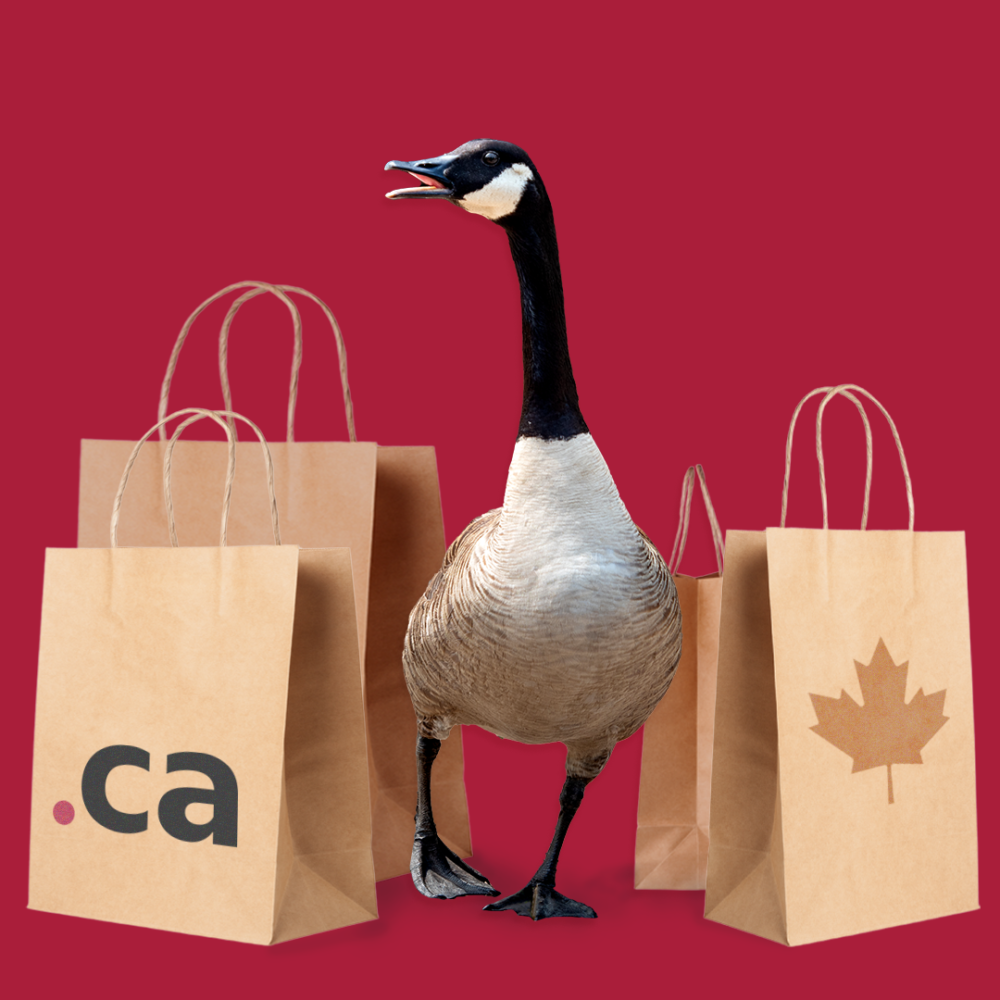Find your .CA today!

A .CA shows you’re
Canadian, eh.
A .CA domain tells your customers that…
- your business supports the Canadian economy
- you charge in Canadian dollars
- you pay and collect Canadian taxes
- shipping is cheap, easy and hassle free
- no border or customs issues
The reason for this is that in order to secure a .CA domain, individuals, businesses, or organizations must fulfill CIRA’s Canadian Presence Requirements.
What can I do with a .CA?
Host a website or build an online store
A website or online store is an obvious and powerful way to use your domain name.
Create your own .CA email address
Your .CA domain name can be used for personalized email addresses (like [email protected]).
Link your .CA to your social media profile
You can forward your .CA domain to another online or social media profile, like Facebook, LinkedIn, or Etsy – anywhere you want.
Frequently asked questions
A domain name is the address that helps users connect to the websites they are looking for. Instead of having to remember an Internet Protocol (IP) address (something like 11.11.11.111), a domain name translates that long string of numbers into a simple web address like www.cira.ca.
When choosing a domain name, you must pick an appropriate extension – the section of your domain name after the dot. Some domain extensions are affiliated with countries like .CA for Canada or .fr for France.
Starting with your business name is a good place to start. A good domain name can help separate you from the pack and drive interest (and traffic) to your site. It screams credibility, it’s a pillar of your digital presence. A badly chosen domain name? Well, it does the exact opposite.
Here are a few tips on choosing a good domain name:
- Keep your domain name simple, brief and typable. Aim for a sweet spot of between five and 14 characters.
- Make your domain name memorable and a match for your brand. Try using a catchy call to action as your domain name or a memorable acronym or abbreviation of your business name.
- Use keywords and/or locations. Incorporating keywords related to your business or hobby can be a great way to help users (and search engines like Google) understand what your site is all about, as well as what you do or offer, at a quick glance.
Registering a .CA domain is quick and easy!
- Search for an available .CA domain name. Find out if a domain name is available to register by using our domain search tool.
- Choose the best domain registrar. When you search for a .CA domain, you will have the choice of which registrar to register the domain through. A registrar is a company that sells domain names and related services like web hosting. Select a registrar that meets your needs and price point
- Buy your .CA domain name. Once you’ve picked your registrar, you’ll go through their platform to complete your registration.
Sometimes a domain name you want is already registered by someone else. Here are your options:
- Choose an alternative domain to launch your website with. As you’re building your business, get online quickly with an alternative domain, and then continue to pursue obtaining the ideal domain and if you’re successful, make the switch later.
- Check the expiry date of the registered domain. When you find out a domain is registered through CIRA’s domain search, the “Domain info” tab displays the expiry date. If the expiry date is coming up soon, keep checking on the status and either attempt to scoop it up during a To-Be-Released (TBR) session (especially important for premium domains) or you can wait and see if it makes it to the next phase of the domain name life cycle, from TBR into general availability.
- Purchase the domain from the current registrant. You can find out who registered the domain with a simple lookup using WHOIS. Depending on their level of domain privacy, you may be able to contact the owner and negotiate buying it from them.
We at CIRA enforce a Canadian Presence Requirement, so not just anyone can register a .CA. This provides peace-of-mind that when a site has a .CA domain, it’s actually owned by a Canadian individual or business.
But how exactly does CIRA ensure that .CA is kept Canadian?
When you register a .CA, you enter into a Registrant Agreement and you will be required to select a Canadian Presence Requirement category to show your connection to Canada. Here’s a few of the commonly-chosen categories:
Individuals
- Canadian citizen
- Permanent resident
- Legal representative
- Aboriginal peoples
Non-individuals
- Corporation
- Trademark registered in Canada
- Official marks
- Association
- Trust
- Partnership
- Educational institution
- Library, archive or museum
- Hospital
- Government

